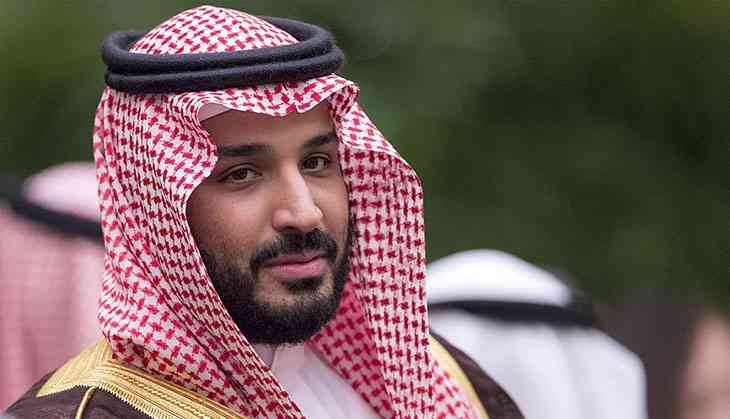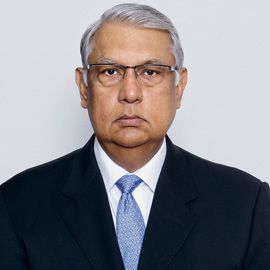Turbulence in the holy land: What the current situation in Saudi Arabia portends

There is infighting in the House of Saud, the royal family of the Kingdom of Saudi Arabia. Crown Prince Mohammad Bin Salman has struck again by dismissing 'several senior ministers and detaining over 11 princes’.
The House of Saud is a very large family which has ruled the desert kingdom since the founding of the state in 1932. Its founder, Abdul Aziz bin Abdul Rahman Al-Saud for short, united the different regions of the Arabian peninsula, after a series of conquests. The current King Salman bin Abdul Aziz is one of the many sons of the founder. Mohammad is the king’s favourite son.
In a series of upheavals within the royal family, the 32-year-old Mohammad bin Salman had earlier manoeuvred himself into the powerful position of Crown Prince which makes him the likely successor to the aging king.
In doing so, Mohammad had elbowed out more senior and experienced princes’ which has led to squabbling within the royal family, though details of major infighting and conspiracies are usually kept a secret in this oil-rich and wealthy kingdom. The public announcement about the current round of dismissals and detentions came via the kingdom’s state-owned news agency, the SPA and the Saudi-owned Al-Arabiya satellite TV channel.
This puts the stamp of finality on these moves and indicates successful conclusion of these sackings and detentions. Mohammad has sought to neutralise opposition to his power grab and the current moves indicate a further consolidation of his position.
The king has also created a new anti-corruption committee, headed by Mohammad, by issuing a royal decree, akin to a 'firman' issued by Muslim kings of yore in India. The committee’s powers include the right to investigate, arrest, ban from travel and freeze assets of anyone deemed to be corrupt.
A long list of exclusions
Two of the most important ministers who have been sacked are the head of the National Guard and the economy minister. The National Guard is a separate armed force, distinct from the defence forces and functions as the Praetorian Guard for the royal family. The Crown Prince has often been the head of the National Guard which is a force drawn from members of loyal tribes. State benefits and funds keep these tribes beholden to the royal family.
The Navy chief has also been replaced.
Reasons for these drastic moves have not been made public but it is not difficult to extrapolate that corruption and struggle for power lie at the root of these dramatic events.
The ministers and princes have been detained in an anti-corruption investigation. The royal family and ministers are known for their lavish and decadent lifestyles fuelled by oil wealth and deeply embedded corruption in the system of governance. Governance is completely opaque and controlled by decisions of the few ruling princes’ in positions of power.
Due process of an opaque governance
The Ritz Carlton hotel in Riyadh, which is normally used as a royal guest house, has been evacuated presumably to incarcerate the detained princes. Even in detention, the royal family members will live in style till they are brought to heel and accept the domination of the Crown Prince.
The detention of Prince Waleed bin Talal bin Abdul Aziz, a cousin half-brother of Mohammad and billionaire businessman has been received with some alarm in the financial world. Waleed is reportedly worth around $18 billion, with investments in global news corporations, IT companies, and many other famous corporations. Waleed has been visceral in his criticism of President Trump calling him a disgrace to America in a Twitter message.
Crown Prince Mohammad has developed a reputation of being a mover and shaker. He has become the dominant voice in decision making in all important domains like defence, economy and society. Several positive moves like the easing of restrictions on women going out in public and women being allowed to drive have been implemented under his watch. He has also stated publicly that Saudi Arabia will revert to a moderate form of Islam, thereby acknowledging that the more conservative and extreme Wahhabi streak had caused problems.
A new economic vision has been mooted for the country till 2030. There are plans to sell off a part of the state-owned oil company ARAMCO in a public offering of shares and monetise the equity. China, now a major importer of oil, has evinced interest in buying shares in ARAMCO. Mohammad has recently announced a major project for building four mega greenfield smart cities to accommodated the growing population.
War on the border
Since 2015, Saudi Arabia has conducted a brutal war against the Houthis in Yemen, a country with which its shares a long border. The scale of civilian casualties and humanitarian abuses inflicted by the Saudi military in Yemen has received scant attention from the mainstream media.
Saudi Arabia remains a staunch ally of the USA and the war in Yemen has been portrayed as a proxy war of influence between Iran and Saudi Arabia and the latter’s allies, UAE and Qatar.
The Houthis control most of northern Yemen and are doughty fighters. The Saudi military, not known for its fighting prowess, has been receiving a bloody nose from the Houthis and the war has remained inconclusive. Meanwhile, the Houthis are mounting more and more daring attacks within Saudi Arabia, the latest being an aborted missile attack on Riyadh airport.
What lies ahead
These developments in Saudi Arabia raise fundamental issues of change and modernisation driven by top-down decisions. The corruption angle goes back to a rare and massive flood in Jeddah, the Kingdom’s main port city in 2009 which killed 120 people and the torrential rains in 2011. Protests had broken out then over management of public funds and infrastructural deficiencies, pointing towards massive corruption.
In foreign policy issues, the continuing feud with Qatar, a fellow member of the Gulf Cooperation Council (GCC), the inconclusive war in Yemen and the failed attempt at regime change in Syria have added to the woes of Saudi Arabia. Falling oil prices have squeezed revenues and perforce led to the reduction of doles and subsidies with which the ordinary Saudi had been inoculated for long to avoid dissent.
The earlier consensus in the royal family has clearly broken down and backroom deals are no longer the norm. Dissent within the royal family has emerged into the open and the current crackdown is a manifestation of this trend.
King Salman wants to brush aside all pretenders to the throne to ease the path for Mohammad. The latest events are part of this plan to quell dissent.
Saudi Arabia’s political stability is an important factor in the region and for the global energy market. Turbulence in the kingdom makes the region and markets uneasy. Mohammad may be trying to build a more modern and diversified economy and a freer social order but any change in Saudi Arabia’s deeply conservative and regressive society will be resisted.
Incremental change is possible but the question is: How long can a society remain stable without dissent, especially at a time when educated Saudis remain jobless and subject to the authoritarian governance of a coterie?
The writer is a Distinguished Fellow at the Delhi-based Observer Research Foundation, a former Secretary in the Ministry of External Affairs, Govt of India and has served as a diplomat in Saudi Arabia
Edited by Jhinuk Sen
First published: 6 November 2017, 15:56 IST


